Today Intel launched eight new Intel Xeon D-1500 processors including three storage acclerated SKUs: the Xeon D-1541, D-1531, and D-1521. We were able to confirm that these new SKUs have embedded acceleration technology for the storage. Intel’s naming convention is to use 1 in the last number of the part name so we see these as the three D-15×1 processors launched today. At the launch back in March 2015 we reported that Intel would be releasing SKUs focused on these markets with specific accelerators on the SoC. Today we have more details on the storage optimized processors.
Storage Accelerated SKUs
Intel is using the Intel Atom C2750 processor (launched in September 2013) as its baseline. STH was the first independent site to benchmark the Intel Atom C2750 in September 2013 and we did note it is an excellent storage platform. In fact, we do utilize the Atom C2750 in our FreeNAS back-up platform. Intel claims significant increases in speed for its newest low power chips.
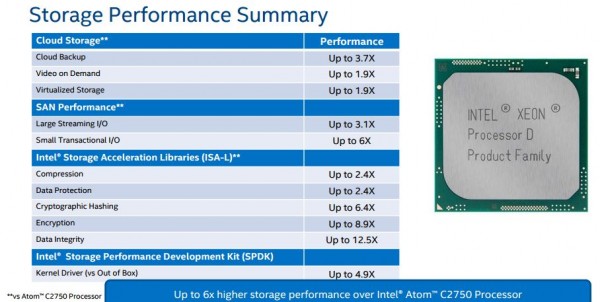
With more cores, PCIe 3.0, more and faster RAM and etc., it makes sense that the D-15×1 line-up would have an advantage. Intel however is making the Intel Storage Acceleration Library compatible with the new storage specific SKUs. Some of the performance claims by the company show dramatic increases in performance.
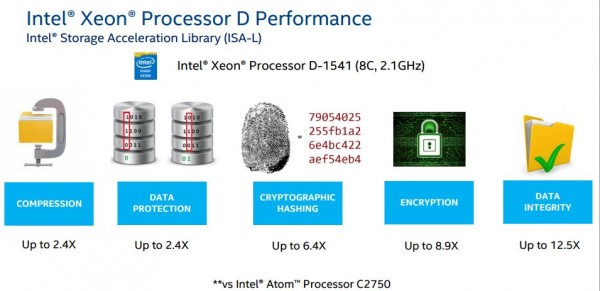
We do not yet have samples to compare performance, but the encryption speeds did catch our attention as the Atom C2750 was AES-NI accelerated. We hope to look into this in more detail in the future.
On the networking side we have the DPDK, and the newest Intel SoCs are also compatible with the Storage Performance Development Kit (SPDK). Intel showcases the increase in SPDK drivers with NVMe drives over stock kernel NVMe drivers:
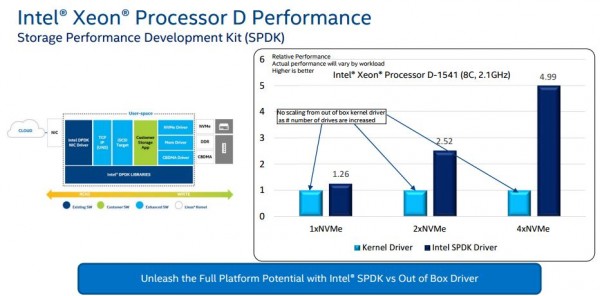
Several sites have noticed similar behavior out of the stock Linux kernel drivers but it does seem like Intel has a way to fix this scaling on the lower power platforms. As an interesting aside, we heard that the test platform for the above bifurcated the PCIe 3.0 x16 slot into 4x PCIE 3.0 x4 which we have yet to see a motherboard implement. We are excited to see this in the wild.
The storage optimized SPDK NVMe driver can be found on Github as it has been open sourced: see here.
For a full break-down of the new SKUs see the release piece here and this chart as a reference:
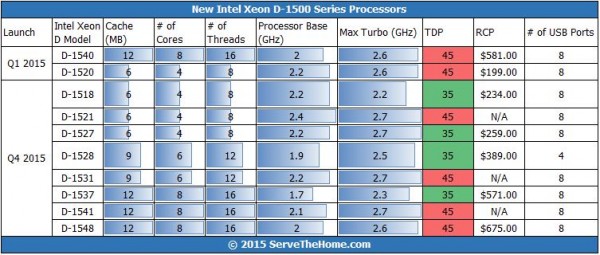

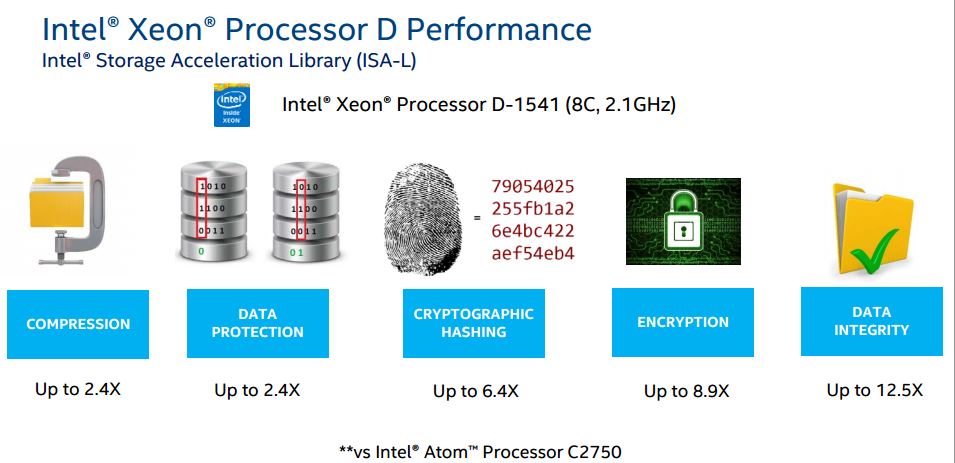



Just noticed what looks like a typo in the first sentence… think you mean 1521, not 1511, right?
Patrick,
I’ve enjoyed and appreciated your Xeon D articles.
So if 15×1 is for storage and 15×8 is for networking, what is the point of 15×7 (which rumor says includes the new 1577 16-core SKU)?
For what it’s worth, I hear also of a Pentium D-1519 and a Xeon D-1539 that both are spec’d for extended temperature ranges.
-AC
Hi Aaron nice catch on the D-1521. That has been fixed. On the 16 core models, and other Pentium models, those are not officially released yet.